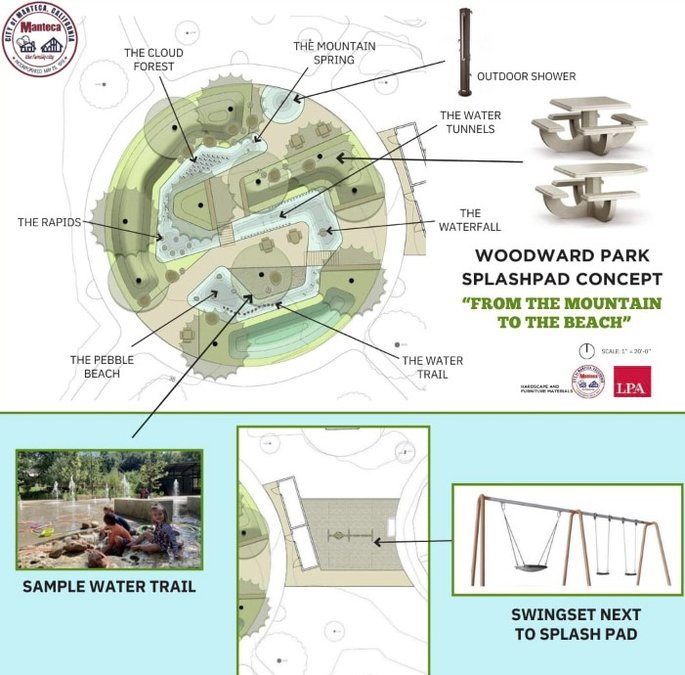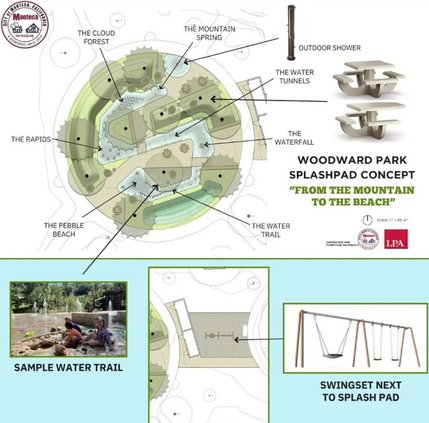Physical work on a splash pad at the heart of Woodward Park will break ground this year.
It is the first major upgrade to Woodward Park in 15 years.
City Manager Toni Lundgren said the pre-fabricated restroom for the project — similar to the one in place at Library Park — has been ordered.
Work will also be done on the existing restroom at Woodward Park.
Lundgren noted tighten state regulations regarding health measures regarding the cleansing of recycled water has added to the complexity and cost of the project.
But because of that, the splash pad will be able to be used through the summer instead of just on limited occasions such as the one at Library Park.
The water at Woodward will be used, drain into a closed system, and be treated for reuse.
Such systems are even allowed by the state to be used on a limited basis during times of declared severe drought.
Splash pads without the treatment component simply send water into the sewer system.
The city is going with a design dubbed “The Stream” favored in a community survey with over 400 respondents.
It features amenities such as a water trail, water tunnel, waterfall, outdoor shower, shaded seating area, and a swing set
It has wet zones will have ground and overhead sprays.
The splash pad includes a channel with a natural stream-like theme.
It envisions dry zones with walkways, sitting areas, and boulders.
There also will be trees and shrubs incorporated into the splash pad envisioned for the heart of the park near the drop off area in the main parking lot
The splash pad will be encircled with a sidewalk connected with walking paths accessing other parts of the park.
The City Council has set aside $595,000 in one-time COVID relief funds toward funding the project expected to cost in excess of $1 million.
The balance is expected to come from growth fees collected for community parks the city already has on hand.
The federal funds — part of nearly $13 million the city received — must be spent for what they were committed for within a set time frame or the city loses it.
The bulk of the money went toward addressing pandemic related expenses and to backfill sales tax losses during the mandatory shutdown.
Some was used as “hazard” pay for frontline city employees who had to stay on the job such as police, fire, solid waste workers, street and parks crews, as well as those involved with keeping the waste and wastewater system running and maintained.
The city used money it didn’t need to zero out pandemic related costs to make health upgrades to the wastewater treatment plant, replace dilapidated street equipment, replace several aging police vehicles and fund a series of one time amenities as well as upgrading pavement on East Yosemite Avenue in downtown.
To contact Dennis Wyatt, email dwyatt@mantecabulletin.com





